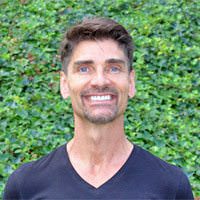Advent Day 9: Healing
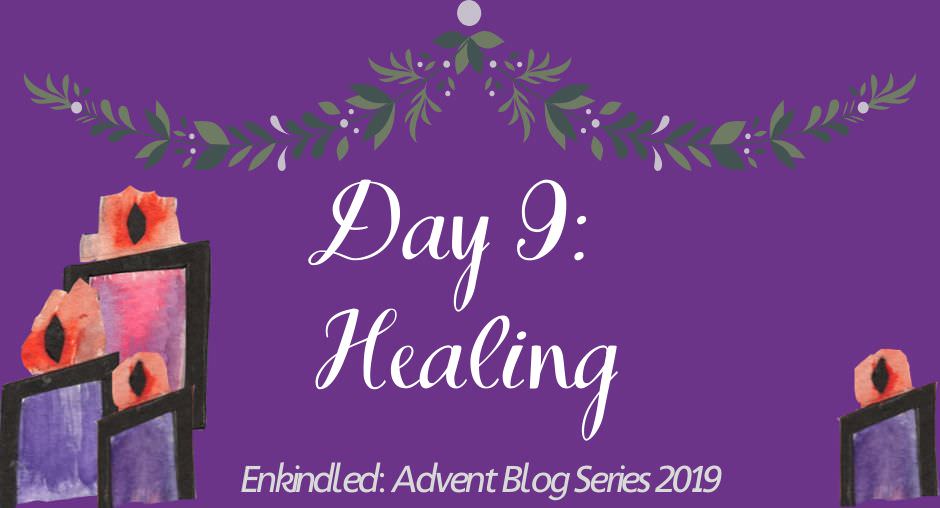
Editor’s note: Missioner Tim Shelgren serving in Kingston, Jamaica offers an advent reflection on healing by sharing some stories of the “extraordinary healers” he has encountered throughout his time on mission so far and his new found understanding of what Jesus might have meant when he used the term “greater works”.
“And Greater Works Than These Shall He Do”
Jesus said, “Verily, verily, I say unto you, He that believeth on me, the works that I do shall he do also; and greater works than these shall he do; because I go unto my Father” (John 14:12). In this verse, the concept of doing “greater works” than Jesus did has raised questions, and hope in me for a long time—ever since I began studying the healing arts of massage therapy and yoga.
Especially concerning the way that Jesus was able to heal people who had terminal illnesses, bring the ability to walk, and bring vision to people who were blind, I ask, “How may any of us possibly do these things today, or even greater things?” Yes, our medical physicians today may be able to treat and heal many serious diseases, but their works are still not as as miraculous as those of Jesus. According to the Scriptures, Jesus even raised people from the dead, and he did so instantaneously from a distance. (John 11:38-44)
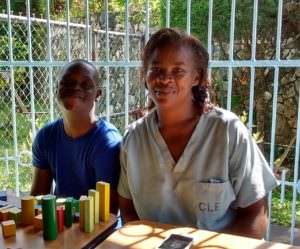
Anne Marie has been working at Mt. Tabor serving teenage boys who are severely ability challenged for five years. She has been there to great me every single time I went to visit the boys for the past two years.
While on overseas mission since February, 2018, I have witnessed suffering unlike any–and at greater magnitude–than I have ever seen in my life back home. Here in Jamaica, I live in the inner city of Kingston. As I go to my service sites every day, I feel the intense tropical heat radiating from both the sky and the hot asphalt below my feet. I hear the dangerously loud, polluting sounds of the overly crowded city traffic. Sometimes I hear all-too-frequent gunshots in the distance. And I smell awful smells that raise the question, “Could those smells possibly be human?” Being from a safe, quiet, small town in upstate New York, I wonder, “How do the Jamaicans live like this?”
Defenseless children of all ages and sizes live at some of my service sites in Jamaica. They, just like many in the Scriptures, have been sick, crippled, and/or blind their whole lives. And beyond these particular challenges, some of the children are also Deaf and/or cannot speak. Many have spines so twisted that they physically cannot raise an arm or even wiggle a toe. Their limbs appear to be 100% atrophied, with 0% muscle density. A number of the kids who I spend time with also live with HIV, contracted in the womb. I ask, “Jesus, where are the healers?”
After almost two years of living in a harsh, inner-city environment and serving a population of children who are born with extreme, life-long challenges, I believe that Christ has awakened me to a new definition of healing. Healing does not necessarily mean that the environment and the extreme challenges are going to change or go away. Healing means that something “greater” must take place.
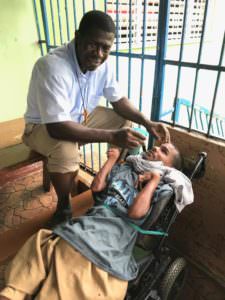
Br. Lubert has been serving with Misisonaries of the Poor for over a decade. His heart is not only genuine, it is huge.
As a certified teacher/practitioner of yoga and as a licensed massage therapist, while on mission I have been doing an ongoing study on the issue of trauma. All the explorers in this field—both the doctors of psychology in the west and the spiritual masters of the east, near where Jesus lived—understand that trauma, once experienced, does not go away. Child abuse and war happen, for example. And victims must not pretend that the abuse or war did not happen, or repress the events too deeply. These forms of denial may lead to a dysfunctional life as an adult, often ridden with physical and/or mental illness. Conversely, in order to function in healthy ways, the victim must build resilience and tolerance, which leads to the capacity to adapt.
In Jamaica, I have met people who have adapted in extraordinary ways. People living on the inner-city streets and children born unable to move or speak have somehow built resilience and tolerance—and have acquired the ability to function. But, they have had no psychologists or spiritual masters helping them. Who, then, helped them achieve these advanced goals?
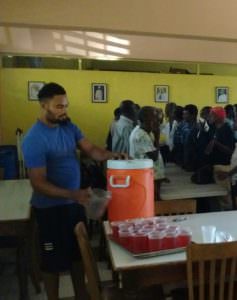
Jerome not only heads up the cooking for sixty five at Jesus the Redeemer Soup Kitchen every week, he also leads the pre-meal singing, keeps order among the crowd, serves the meal, and mops the floors after. Though he is thirty years younger than me, I see him as a role model.
I am going to give credit here to the people whom the Jamaicans call the “caretakers.” At the multiple and different types of ministry sites where I serve, I see the same individuals week after week, month after month, taking care of the people living homeless on the streets and the kids living with extreme disabilities. Over and above everyone else, including myself who can only visit the sites a few hours per week, the on-staff caretakers are the ones who are consistently cooking for the hungry, bathing the dirty, and changing the soiled. To make the statement more descriptive, the on-staff caretakers are the ones who are relieving suffering and actually making a harsh environment feel less harsh.
No, the caretakers are not ridding anyone of HIV or making anyone walk, see, or talk. However, might they be doing something more complex? Or even greater? Jamaica’s caretakers are helping many build resilience, tolerance, adaptability, and the ability to function. As a missioner, I have seen very little denial, depression, or even discontent in the children I have met and served. Nor in the adults on the streets who I have served, for that matter. These people do not present as victims. They present as people thankful to be loved and cared for.
Perhaps when Jesus said, “Greater works than [mine] shall you do,” he was not saying that we would instantaneously cure more people than he did, or calm more inner-city storms. Perhaps he was suggesting that we would learn to help others find relief from suffering by supporting them, with consistency and love, while they build resilience, tolerance, adaptability, and the ability to function. Unlike an instant cure, this feat is far more long-term, self-giving, interpersonal—and empowering for everyone involved—as per trauma specialists of all sorts all over the world.
Soon my time on mission in Jamaica will end. I will move forward from my overseas mission experience with a new definition of healing, and an understanding of what Jesus may have been talking about when he used the term “greater works.” And along with these specific and valuable overseas mission revelations, I have a vivid and powerful memory of the people who I believe Jesus uses today to do these works. Those people are extraordinary healers. They are called… “Caretakers.”
Tagged in:

